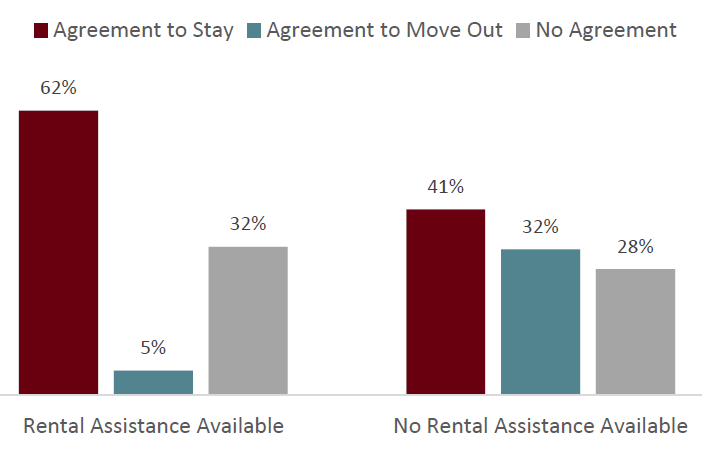In an eviction courtroom filled mostly with self-represented defendants, the confusion and fear can be palpable: fear over what the future holds, and confusion about the process and the parties’ options.
But some of this anxiety can be mitigated. Represented or not, parties should always have access to the information they need to understand what is happening in their court case. One way to help reduce the confusion and fear is to provide easily accessible court forms with instructions in plain language.
A small group of individuals is working toward precisely this goal, and recently I began volunteering with them.

When forms are understood and completed correctly, the court process is smoother, time is used more efficiently, and there is less risk of legal errors that might compromise a case on behalf of self-represented litigants.
In 2012, the Illinois Supreme Court created the Illinois Supreme Court Commission on Access to Justice (Commission) to “promote, facilitate and enhance equal access to justice with an emphasis on access to the Illinois civil courts and administrative agencies for all people, particularly the poor and vulnerable.” The same year, the court adopted an administrative order spelling out how the Commission and the Administrative Office of the Illinois Courts (AOIC) would be tasked with developing, reviewing and approving standardized court forms for the entire state.
The Forms Committee currently has 13 drafting subcommittees, which consist of judges, attorneys, clerks and other court stakeholders — such as RSI and me — who help create new forms when needed and update existing forms in an annual process, according to Lillie Schneyer, Forms Program Coordinator with the AOIC.
“Annual review is an important process to ensure that the forms are up to date with the latest court processes, are as user-friendly and effective as possible, and remain legally sufficient,” Schneyer explains.
Over the past few months, I have been working with the Eviction Subcommittee to revamp the forms provided to people involved in eviction cases. We are reviewing current documents, such as the Eviction Order, Appearance and Agreed Order forms, that have received comments and suggestions from members of the public or that members of the subcommittee have comments or questions about. (Draft forms are posted for public comment on this page of the Illinois courts site.)
We work together as a small group to adjust language, instructions, spacing, and any other minute detail that has been brought to our attention. Our overarching goal is to make the forms as simple and accessible as possible, with the hope that any self-represented party can maneuver them, while also ensuring that the language used is legally responsible and applicable.
We work together as a small group to adjust language, instructions, spacing, and any other minute detail that has been brought to our attention as in need of revamping. We analyze the law in reference to the language to be used on the forms and the implications of the changes we are making. Our overarching goal is to make the forms as simple and accessible as possible, with the hope that any self-represented party can maneuver them, while also ensuring that the language used is legally responsible and applicable.
The process can be tedious, but having seen eviction cases play out in my role with RSI, I recognize how important it is for all parties to fully grasp what they can expect from the court, what is expected of them, and the options in front of them so they can make informed choices. The forms guide and educate litigants in their options and legal responsibilities. When forms are understood and completed correctly, the court process is smoother, time is used more efficiently, and there is less risk of legal errors that might compromise a case on behalf of self-represented litigants. All in all, having accessible Supreme Court forms benefits both the self-represented litigants and the court itself.
When our work is complete, the revised forms will be published in the Court Forms Hub of the Illinois Courts website.





